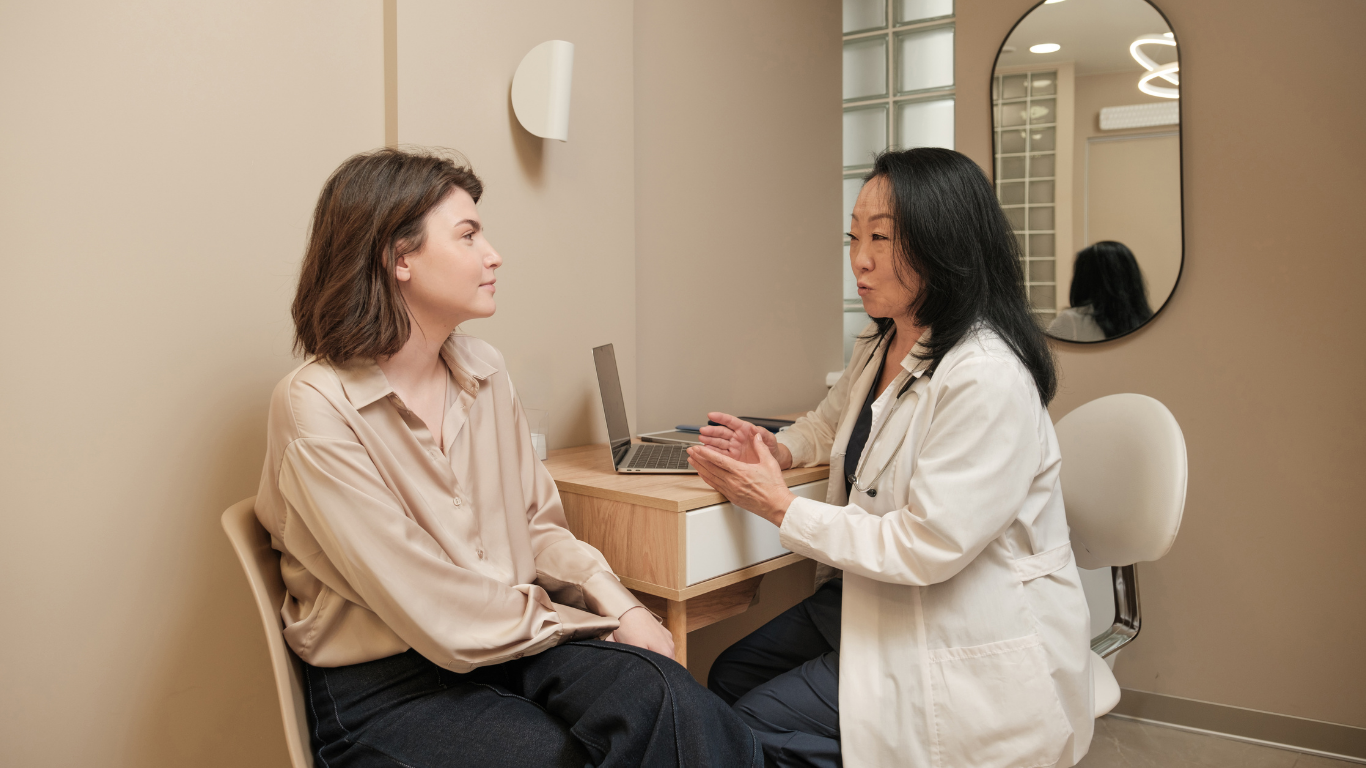If a brown patch, uneven freckling or blotchy tone bothers you, a visit to a pigmentation clinic can provide all the answers to your concerns. As the name suggests, a pigmentation clinic is a facility that specialises in diagnosing and treating pigmentation on the skin.
In an accredited pigmentation clinic in Singapore, the specialists you can expect to find are dermatologists or aesthetic doctors trained in pigment problems. The other specialists you can find in these facilities are nurses and therapists who often support treatment processes.
On this page, we will show you how pigmentation clinics arrive at specific treatment options. Also, we will share how to prepare for your treatment. But before that…
What Tests are Done for Hyperpigmentation?
If you go to a pigmentation clinic to assess hyperpigmentation, you should expect a thoughtful process that combines observation, imaging and sometimes measurements to confirm what’s going on and classify it. Here are some of the tests you may be administered for hyperpigmentation;
- Wood’s Lamp: A Wood’s lamp uses ultraviolet light in a dark room to highlight superficial pigment. The clinician places the lamp close to your skin and inspects areas for fluorescence or contrast. Brightening suggests epidermal pigment and no change points to deeper, dermal pigment.
- Dermoscopy: Dermoscopy uses a handheld magnifier and light to reveal pigment structure and pattern. The clinician presses the device to your skin or holds it slightly above to examine pigment colour, granularity and borders. It helps distinguish epidermal, dermal or mixed pigmentation reliably.
- Reflectance Confocal Microscopy: Reflectance confocal microscopy is a non-invasive laser scan that gives near-cellular images of skin layers. You rest while the device scans a small area, producing real-time images that show melanocyte activity, pigment depth and inflammatory cells. This test is preferred for complex cases.
- Skin Biopsy: Skin biopsy removes a small sample from your skin under local anaesthetic for microscopic examination. A tiny stitch is then done to close the site. Lab analysis can then help identify whether pigment is due to increased melanocytes or melanin trapped in the dermis.
- MASI, Colourimetry and Mexametry: MASI scores assess melasma severity by grading area, darkness and homogeneity across facial zones. The specialists at your pigmentation clinic in Singapore can use it to track change. Colourimeters or mexameters measure skin colour numerically by light reflection or absorption to give objective values to monitor pigment intensity during your treatment.
- Blood Tests: Blood tests may be ordered when systemic causes seem likely. The specialists will check thyroid function, sex hormones, cortisol, vitamin levels and autoimmune markers or liver tests. Results can reveal hormonal or metabolic drivers of pigmentation and guide whether topical, oral or referral treatments suit you.
What does a Dermatologist Recommend for Hyperpigmentation?
When it comes to skin pigmentation treatment, there is no one-size-fits-all option. In a good pigmentation clinic in Singapore, the specialist will want to begin by finding the cause, pattern, depth and your skin type.
This will then determine whether you need creams, procedures or both. Expect a stepwise plan that starts with low-risk options and adds stronger tools if needed.
Topical therapy is usually the first line for most hyperpigmentation. Your doctor may prescribe hydroquinone (short course) or alternative lightening agents like azelaic acid, niacinamide or retinoids.
A triple-combination cream (hydroquinone, retinoid, mild steroid) speeds fading for melasma but needs close follow-up. If used correctly, topical pigmentation treatments can reduce melanin production and steady skin cell turnover.
Sun protection must sit at the centre of every plan though. With this in mind, expect your dermatologist to insist on broad-spectrum SPF 30–50 daily, physical blockers (zinc oxide or titanium dioxide) and hat use.
Without strict photoprotection, there is a high risk of your treatment failing faster and pigment returning. Though effective, there is no guarantee that the topical pigmentation treatment you’ve been offered will work.
But that doesn’t imply that the imperfection on your skin can’t be cleared. If for any reason your topical therapy fails to deliver the expected results, the specialists at your pigmentation clinic in Singapore may add add systemic or in-office treatment options.
Oral tranexamic acid is one of the most useful short-term option for melasma but the doctors will first weigh benefits and clotting risk before prescribing. Topical tranexamic acid or intradermal injections can help if bleeding risk makes oral use unsuitable for you.
There are also specialised procedures that can help but these target pigment differently. Superficial chemical peels (glycolic, salicylic, TCA) remove pigmented epidermis and speed turnover, while microneedling encourages controlled repair and can boost topical penetration.
Your providers will select peel depth and frequency based on your skin tone to lower the risk of post-inflammatory hyperpigmentation. There are also lasers and light devices which work on pigment or blood vessels.
Q-switched Nd:YAG, picosecond lasers and fractional devices can fragment melanin to cleanse the area with the pigmentation effectively. However, they carry higher risk of rebound darkening in deeper or richly pigmented skin.
To avoid such setbacks, doctors use Wood’s lamp, dermoscopy or confocal imaging to decide if pigment is epidermal (better for peels and creams) or dermal (may need laser or longer therapy). In many pigmentation clinics, providers combine treatments for the best outcomes.
And in a good facility, the specialists will also help you set realistic goals, monitor progress with scores or imaging, and plan maintenance to prevent relapse. You and your provider weigh speed of results, safety and cost before choosing the right approach for you.
Wrapping Up
A good pigmentation clinic in Singapore uses a careful combination of assessment, testing and staged treatments to match the right therapy to your skin. You will get a tailored plan, test patches when needed, and clear aftercare instructions so you get steady improvement with low risk. Give the team full, accurate details at your first visit and follow their prep and aftercare steps that helps treatments work and cuts the chance of setbacks.
If you’re in Singapore, book a consultation at our pigmentation clinic in Singapore to get a personalised assessment and treatment plan. Bring any past treatment records and a list of current skincare products you’re using. Call or visit us at;
One Face Skin Care – Melasma | Pigmentation | Acne Treatment Singapore
1 Tras Link, #02-03/04 Orchid Hotel, Singapore 078867
+65 8809 9066




